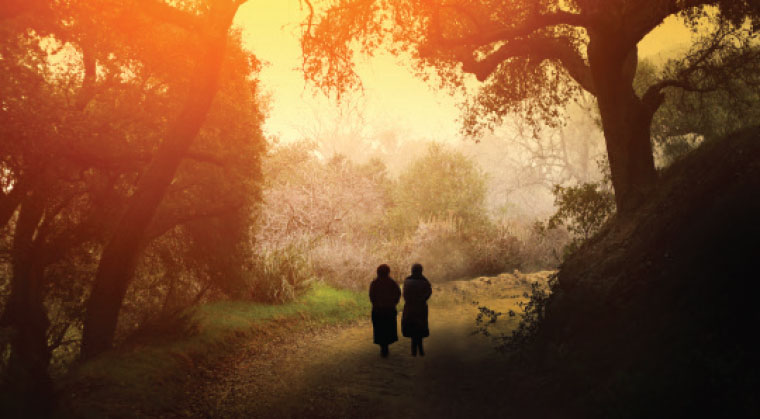Where You Will Go

She looks old. My Heddie, my baby. The joke curdles. Hip hip, whatever, hip hip hooray. We’re all aging here in this old house

Doris
My hip makes itself felt. I massage it, my new hip, three weeks old now. Hip hip.
I snort. “Hey, Heddie, I have a hip hip,” I call into the kitchen.
“Whadjasay?” she calls over the hissing of the onions.
She comes into the living room, my good daughter, she doesn’t want me to strain myself shouting. Her hair is frizzing from the steam and she’s wearing the glossy London bus apron I picked up in Harrods on a trip to Velvel’s son’s wedding. I can’t do overseas now. I can’t even imagine sitting in an airplane seat for that many hours. And Velvel’s married off all his kids, so has Brenda.
Heddie inclines her head. “What was that, Mom?”
And something about the way she’s standing, hunching again, my too-tall daughter, frowning a bit with the question; something about the late afternoon sun bursting in through the curtains, her face white and lit up; for the first time I see the lines around her mouth. She looks old. My Heddie, my baby.
The joke curdles. Hip hip, whatever, hip hip hooray. We’re all aging here in this old house.
“What?” she says again.
I sigh. “Oh, nothing.”
“Supper’s ready,” she sings out moments later.
I wheel the chair over into the kitchen.
The soup is a fiery orange. I take a spoon, sniff. Butternut squash, carrots, tomatoes — yum — bring it to my lips. Hot and bland.
“Salt, sheifele,” I say this gently, but really, it happens every time.
She brings the whole spice rack. She knows me. “Season it yourself,” she always says, “We all like it different.”
But it’s not that. It’s that she’s scared. Scared to put her own mark on her cooking, to define it. I choose the cayenne pepper and sprinkle it liberally, add some garlic salt and a dash of parsley. Scared of other things, too.
She sits down opposite me and tastes her own soup thoughtfully. After three spoons she reaches for the salt. I’m already cranking the pepper mill. Hot black flakes, freshly milled. Bold. How are we even related?
“I got our Shavuos order from Mrs. Ulman’s place on my way home,” she says. “Twigs and leaves and flowers in foam, heaven.” Her voice is dreamy. “Maybe we’ll make a basket out of twigs inset with the flowers, or, or, something long, winding, flowers on a wave, y’know…” Her hands swirl across the table, knocking over the salt.
I laugh. “Someone’s getting carried away.”
She mock frowns. “You should also, though, Mom. C’mon, you love this stuff. Let’s work on it tonight. That good, Mom?”
As if I have anything else on. But she never makes me feel like that, Heddie. I’m blessed, I am, my heart squeezing love for the daughter who’s bending over the oven, bearing a roast on a scalloped tray to the table, setting it down with a dainty movement, almost a curtsy.
She makes me queen in my home.
But what of her?
Oops! We could not locate your form.












